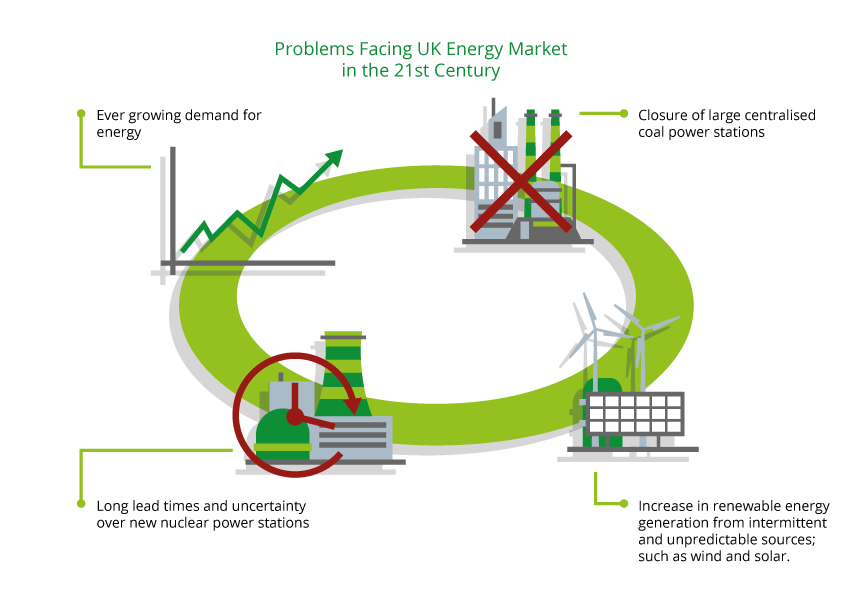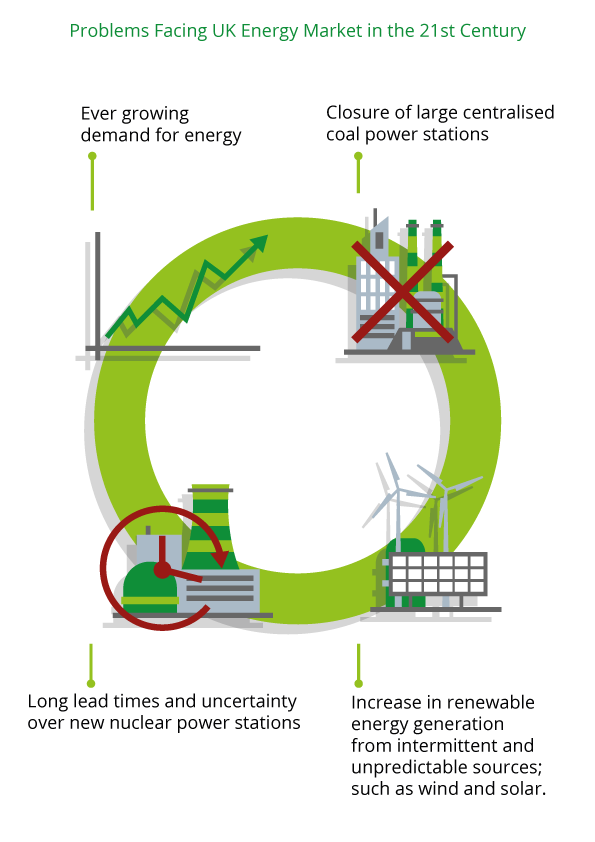About
Why do we do what we do?
The 21st century has left energy suppliers with a new, and increasing, problem: how do we provide for an ever growing demand for energy, when large centralised coal and fossil fuel stations are gradually being phased out?


As a provider of green energy supply, we believe that energy storage and gas peaking plants are the best way to bridge the gap between the old (unsustainable fossil fuel sources) and the new (currently unreliable ‘green’ energy supplies, such as wind sun).
Energy storage, in basic terms, is the absorption and release of energy when required, thereby offering rapid flexibility during periods of fluctuating energy generation and demand. Gas peaking plants offer a similar service using batteries and have greater environmental benefits.
Energy storage and gas peaking plants can help to de-carbonise UK energy supplies and are consequently being branded as a key component in the UK reaching the target for emissions reduction under the Climate Change Act.
Meanwhile, being positioned as a key supplier of gas peaking energy – providing grid-stable energy where it is most needed – carries significant weight, with the government having invested considerably in the supply of these kinds of renewables. This allows us to deliver sustainable projects that shape the future of the energy market, while providing market leading returns to our partners.
What do we do?
Platinum Energy currently has three gas peaking power plants under construction and in the pipeline. These plants deliver a constant supply of energy to the National Grid, which other green energy solutions are currently unable to do.
To learn more about our current and future projects, click here.
Why gas peaking?
Unlike internal combustion engines, they produce less exhaust gas pollution. In fact, gas turbines use the excess air for combustion purposes. Along with natural gas, gas turbine power plants make use of digester gas, synthetically produced gases like diesel fuels, and landfill gas.
Gas Peaking turbines do not require high levels of lubricating oil. This automatically brings down the cost of operation. Also, as they have a higher operational speed, these turbines assist in quicker power and energy generation. This makes them one of the best, most profitable, options for cleaner power generation.
Distributed power technology is quite flexible and can operate both in standalone and as part of an integrated system. It is also a better option when compared with solar panels, hydro-power, fuel cells, and small wind turbines.
